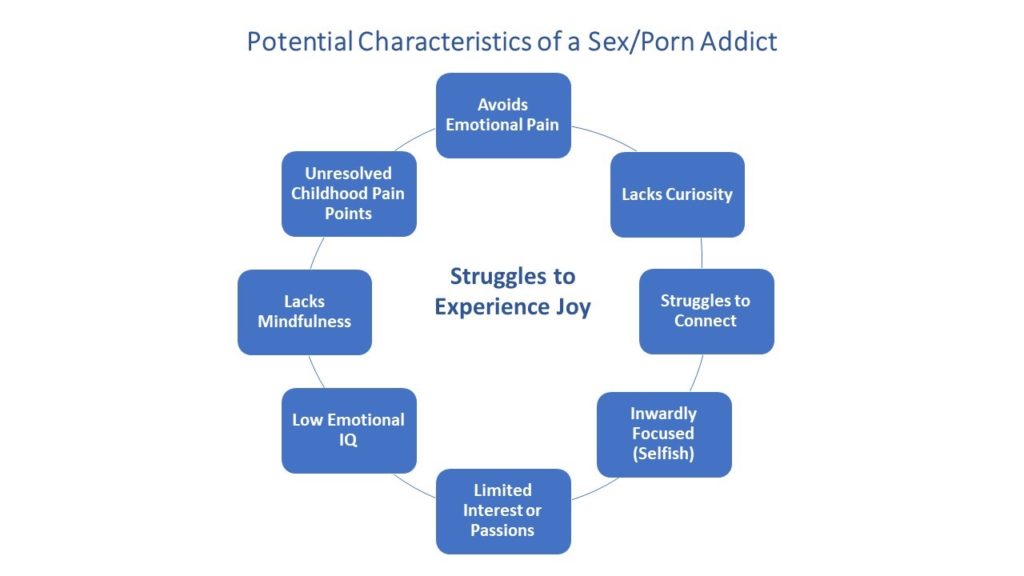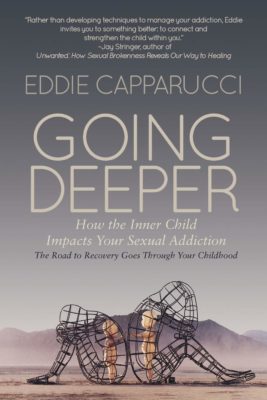By Eddie Capparucci LPC, CSAS, CPCS
Click HERE for the entire four-part series.
“Why should I believe him,” Brenda asked me about her husband, who told her he has not watched pornography for more than nine months. “Tell me why I should trust his man just because he tells me he’s no longer watching it. I have heard him make these claims many times, only to have my heart broken again and again because he was lying.”
Women like Brenda have every right to question the sincerity of their partners, especially if there has been a history of lying, deceit, and gaslighting. It is challenging for them to forget the painful falsehoods and give their partner yet another opportunity.
So how do you know if your partner is on the road to recovery from his struggle? I believe you need to see the ‘new guy’ in your relationship.
“It’s so hard to believe he is telling me the truth when I see so many of the same behaviors,” said Kelly of her husband Carl, who used to spend endless hours late at night webcamming with escorts. “He’s not online late at night anymore, but still lies about small things, he doesn’t help me around the house, he never talks, and the phone is always in his hand. He is the same guy, except he says he’s no longer chatting with sluts. Sorry, but I don’t buy it.”
And there you have it. Carl may no longer be engaged in video chatting, but he is the same guy who was being unfaithful to Kelly. It’s no wonder she doesn’t trust him when he says he has changed. Because with the exception of removing the destructive online behavior, he has done nothing to change and become the man she would like him to be.
So, what is going on here?
In my private practice, where I work exclusively with men struggling with sexual and pornography addictions, I have identified significant character deficiencies that I believe plague all of these men. Looking at the chart below, you can see eight key issues that prevent men from becoming the ‘new guy’ and experiencing rewarding and joyful relationships.
The characteristics I have identified are:
- Avoids emotional pain
- Lacks curiosity
- Struggles to connect
- Inwardly focused (selfish)
- Limited interests or passions
- Low emotional IQ
- Lacks mindfulness
- Unresolved childhood pain points
Based on my work with this client population, I estimate that 90% of men who struggle with compulsive sex and pornography display at least six of these characteristics, and this causes issues when trying to cultivate and maintain healthy relationships. Moreover, I always believe at the root of these issues is a lack of proper nurturing during the critical development years of childhood.
 A vast majority of these men had parents who could not nurture them or teach them how to deal with emotional distress. Without that importance guidance, these individuals were left to determine on their own how to cope with emotional pain and provide themselves with comfort. As children, with thinking that is emotionally based and without vast worldly experiences, they came up with a simple solution to this dilemma – I won’t think about it. So they distracted themselves with too much television, fantasy play, food, etc. Somewhere along the way they stumbled across sexual activity and discovered this was the most effective of all forms of distractions and stimulation. And it soon became their go-to drug to eliminate emotional distress.
A vast majority of these men had parents who could not nurture them or teach them how to deal with emotional distress. Without that importance guidance, these individuals were left to determine on their own how to cope with emotional pain and provide themselves with comfort. As children, with thinking that is emotionally based and without vast worldly experiences, they came up with a simple solution to this dilemma – I won’t think about it. So they distracted themselves with too much television, fantasy play, food, etc. Somewhere along the way they stumbled across sexual activity and discovered this was the most effective of all forms of distractions and stimulation. And it soon became their go-to drug to eliminate emotional distress.
Now, as adults, they still run away from emotional pain with destructive behaviors such as compulsive sex and pornography.
Men who wish to experience real joy and happiness in their relationships need to work on the character issues outlined above. They must strive to become better men, husbands, fathers, sons, coworkers, and friends. And it all starts by working on these eight characteristics.
In the coming weeks, I will be breaking down each of these areas and outlining steps and tools that can lead to these men toward becoming the new guy.
* * * * *
 Eddie Capparucci is a Christian therapist and licensed by the State of Georgia. He is certified in the treatment of sexual and pornography addiction, and he and his wife, Teri, have a private practice working with men struggling with sexual and pornography addictions, as well as their wives who are dealing with betrayal. Among his many clients, Eddie has worked with professional athletes, including NFL and MLB players and television personalities.
Eddie Capparucci is a Christian therapist and licensed by the State of Georgia. He is certified in the treatment of sexual and pornography addiction, and he and his wife, Teri, have a private practice working with men struggling with sexual and pornography addictions, as well as their wives who are dealing with betrayal. Among his many clients, Eddie has worked with professional athletes, including NFL and MLB players and television personalities.
He is the creator of the Inner Child Recovery Process (ICRP) for the treatment of Sexual and Pornography addiction. This unique treatment method helps individuals get to the root issues of their addiction and provides them with the tools and insight to manage the disorder. It is endorsed by many leaders in the sex addiction field. The Inner Child Recovery Process is the subject of his new book, Going Deeper: How the Inner Child Impacts Your Sexual Addiction. He also is the host of the webcast entitled Getting to the Other Side: Helping Couples Navigate the Road to Recovery.
